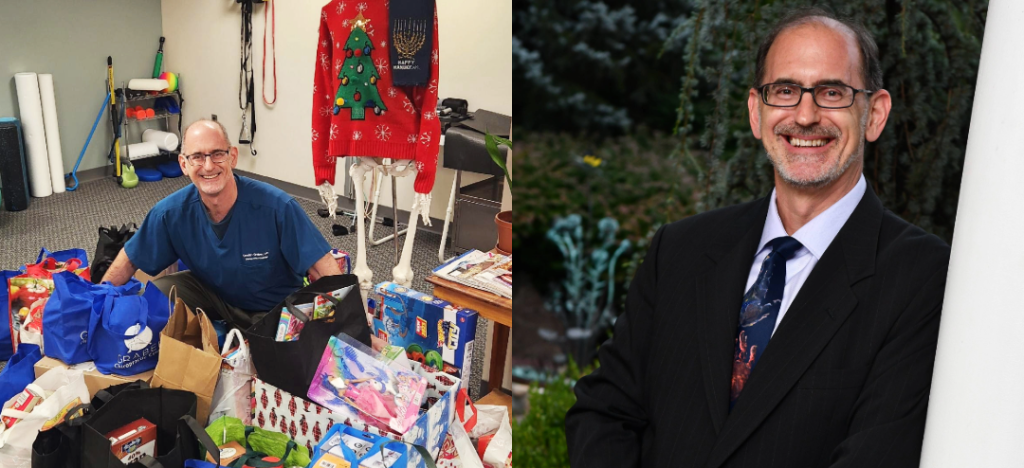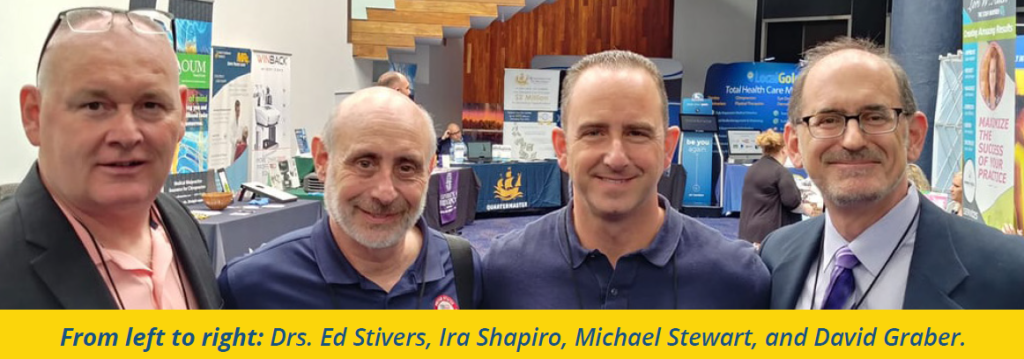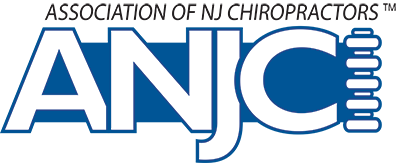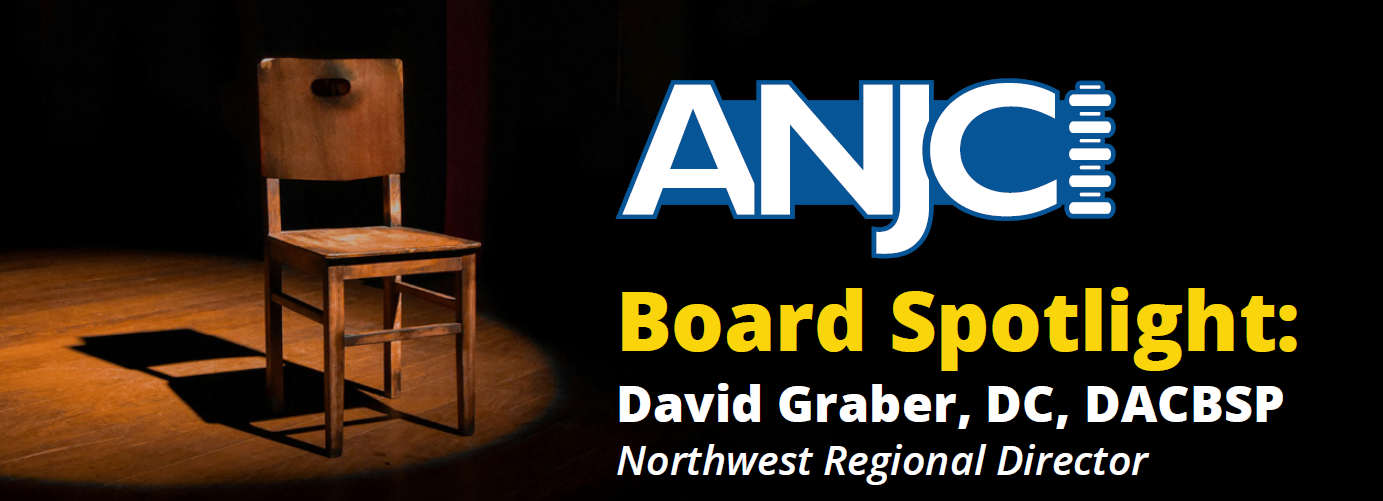What led you to a career as a chiropractor?
I suffered from back pain as a child and have been under chiropractic care since the age of 10.
While playing high school football, I further injured my back, but thanks to chiropractic care, I managed through the season—and won awards for my play.
Unfortunately, the damage significantly impacted my body. I was unable to bend past my knees for more than a year following my high school football career. I sought treatment from DCs, DOs, MDs, and PTs, but never fully recovered. I then found a sports-oriented chiropractor who finally got me back to full activity. I was amazed at the results and decided that I wanted to help people regain their life and mobility, as I had.
I attended NYCC, now Northeast College of Life & Sciences, and then became CCSP Certified. I enrolled in the inaugural class of chiropractors for the American Board of Chiropractic Sports Physician Diplomate program and received my diplomate in 1996.
With your sports training, do you focus mostly on athletes and sports injuries in your practice?
Everyone is an athlete.
Everyone moves and the principles of movement and sports care apply to everyone. The sports diplomate program taught me how to care for all joints and soft tissues, in all ages, and from all sorts of mechanisms of injury.
I am a general practice chiropractor caring for patients with all kinds of conditions from the “womb to the tomb” on a daily basis. My youngest patient was 15-minutes old, and my oldest is over a century old.

What motivated you to get involved with the ANJC and join the Board of Directors?
The ANJC is the voice of the profession in New Jersey.
Our profession needs strong state associations to survive-and-thrive, as they are the strongest force for progress. This is true in every state, and especially here in New Jersey.
I had been involved with an ANJC predecessor, the New Jersey Chiropractic Society, as a Board Member and Membership Chairman. Several years after the ANJC was formed, I was asked to chair the Northwest region. I jumped at the chance to get involved in a leadership position. I was then elected to the ANJC Board of Directors where I have served for several terms.
I have served on several non-profit boards and have found the members of the ANJC Board of Directors to be among the most collegial and productive group of dedicated doctors in our profession. We don’t always agree (what group of chiropractors do?), but we’ve accomplished a lot, and always strive to be a leader amongst state associations across the country. We adhere to the ethos of “unity without uniformity.” We are a big tent that represents many different types of practice, creating and maintaining a sense of community for our members.
Being a member of your state association is a requirement, in my view. Most chiropractors are solo practitioners and can underestimate the value of connecting with colleagues, learning from others’ experiences and practice challenges, exchanging new ideas and outlooks and enjoy the camaraderie through networking.
You provide educational programming throughout the country. How, and why, did you get involved with teaching? How does it complement your private practice?
I teach to help chiropractors get better results with their patients and more confidence in their craft.
Our profession has been built on getting clinical results with our patients and establishing good relationships with them. I taught technique and diagnosis for a year at New York Chiropractic College. I realized that I had a talent, with a love for teaching clinical and technique skills.
When it comes to hands-on diagnostic, adjusting and treatment techniques, I believe these skills need to be learned and developed with live, in-person training. Videos and distance-learning are great for some topics, but when teaching clinical skills, NOTHING is as effective, exciting, or impactful as learning LIVE in real time. Not to mention, it’s a lot more fun as well!
Teaching is sharing. The doctors in my classes and I share our knowledge gained in-the-field of daily patient care. That interplay of real-world experiences benefits each of us. I love to see the enthusiasm doctors leave my classes with, knowing they can help their patients at a greater level. And, I feel the same way from what I discover from them. We all upskill ourselves and our patients are ultimately—the main beneficiaries.
You are clearly passionate about volunteerism & community involvement. Why is this important and fulfilling to you?
Volunteerism, both in communities and in a profession, is something that was ingrained in me growing up.
My father was the Jewish War Veterans Chairman of Volunteer Services for the Veteran’s hospital in Northport, NY. On holidays we would hold services for the disabled and psychiatric in-patients. He was always fighting and lobbying to improve their care and living conditions.
Years ago, I was the President of a small non-profit theatre company, Act1 Presentations. They developed and performed plays to teach aspects of moral courage. One of these is volunteerism, which is a fundamental way of serving and uniting the community one lives in. That service can come in formal and informal ways, through large projects, or in small daily acts.
Over the years I’ve coached youth sports, volunteered in schools, served on the board of the YMCA, chaired Holocaust education at our temple, advocated for Holocaust survivors, served as an on-field physician for dozens of sports events, and run food and toy drives out of my office for the Jersey Battered Women’s Shelter, the Interfaith Food Pantry, and other local charities.
A practical benefit of community involvement is that it builds your reputation in the communities you serve. In a society that is getting more and more disconnected from their neighbors, volunteerism is needed now more than ever. Next to patients spreading the word about you, there is no better way to build trust in the public’s eye than giving and donating your time and talent to your local neighborhood and associations.
What’s the best advice you can give to a new graduate of chiropractic school?
The future of our profession will be built on incorporating the latest evidence and research findings into practice, having exceptional adjusting and manual skills as a hands-on healer, and mastering the art of human communication.
Any chiropractor who commits themselves to ongoing continuing education in these areas, matched with a heart of compassion, will always find a crowd of people seeking out their services.
Connect with and get involved with the profession through your state association like your livelihood depends on it flourishing. Because, it does!
And, enjoy the journey of your chosen career.
Learn more about Dr. David Graber and his practice, Graber Chiropractic Center: drgraber.com


